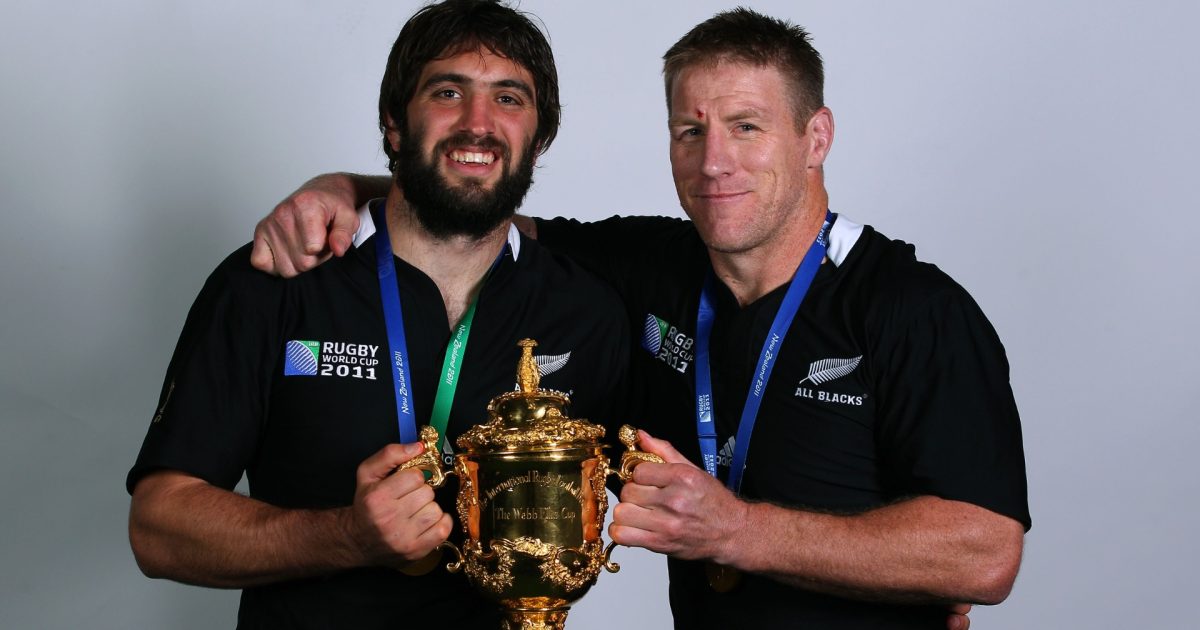'Showed me how to be professional': How an ABs great changed Whitelock's career

Two-time Rugby World Cup winner Sam Whitelock has revealed how an All Blacks great “showed me how to be a professional” early in his career.
Whitelock will go down in history as one of the sports all-time greats when his career is all said and done; with his leadership and work ethic simply synonymous with the All Blacks’ high standards.
But he’s had to learn some lessons along the way.
Before entering the fray of professional senior rugby, Whitelock was part of the champion Baby Blacks team of 2008.
That squad, who won the World Championship with a dominant 38-3 demolition of England, included Aaron Smith, Zac Guilford, Ash Dixon and Scotland’s Sean Maitland.
But Whitelock was a special talent; he was always destined for more.
Whitelock made his provincial debut for Canterbury shortly after, and later won his first Super Rugby cap with the Crusaders in 2010.
The towering lock didn’t stop there though, as he was called up to the All Blacks for the first time.
As Whitelock discussed on The Good, The Bad & The Rugby, packing down alongside dual-international Brad Thorn proved to be an educational experience for the rising star.
“(I’ve been) really privileged with the way my career has gone so far and I’ve had some amazing people that have helped me along the way.
“The one thing that probably sums it up in my mind is how I started. Being this guy rocking up, playing alongside Brad Thorn.
“Thorny used to grab your shoulder, big hands and start laughing, ‘oh come with me boy.’ He actually showed me how to be professional; showed me how to stretch, ice bath, look after my body.
“He always said for him, he used to always look at the gym as an opportunity to grow your body, grow your defence, grow your big shields.
“I remember I was 21, 22, I was getting beaten up every game and he was like ‘I feel great’ because he had these defences.
“For my first game I was 106 kgs where the heaviest I’ve been is 124, so that is all pretty much muscle and defences and shields, and that’s probably why I’ve been lucky to play a long time.”
Whitelock went on to start in the 2011 Rugby World Cup final against France alongside Thorn, with the All Blacks ending 24-years of hurt in front of a passionate Eden Park crowd.
Now, more than a decade on, Whitelock has become one of the most important players in New Zealand rugby.
Whether it’s domestically with the champion Crusaders, or captaining the All Blacks during their recent Autumn Nations Series campaign, the lock is irreplaceable.
While he admitted that “the enjoyment side” of professional “has changed”, the 143-test veteran still looks forward to playing the game he loves.
“I still enjoy it, and I think anyone that’s played rugby to a high level knows that if you’re not enjoying it, you’re not going to put your head in that dark spot and stop a defensive maul or make all these tackles because it does hurt, it is hard,” he added.
“But the enjoyment side has changed. When you’re younger, yeah we all want to go out and score 100 tries.”

























